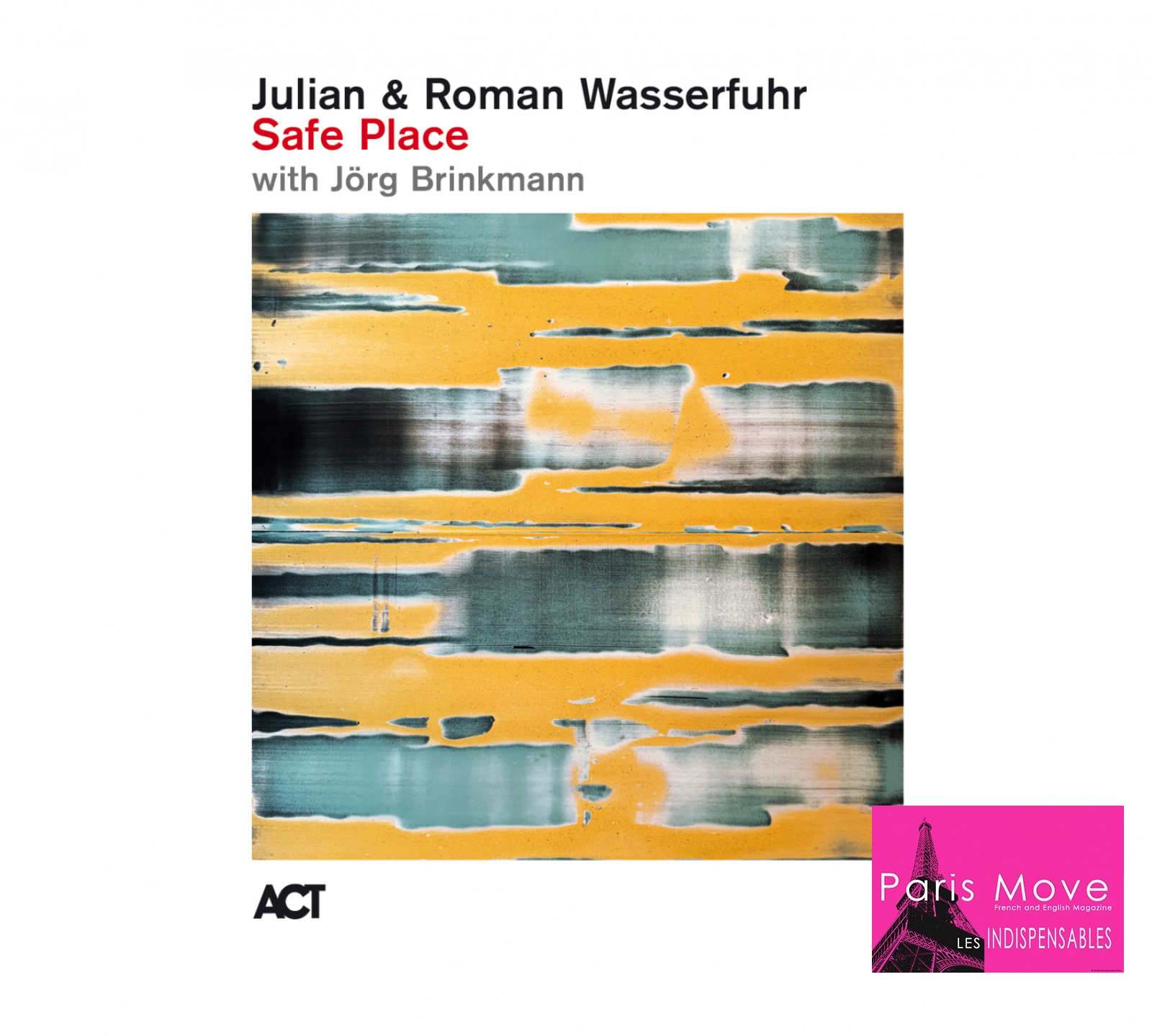| Jazz |

The Wasserfuhr brothers make a grand return with their new album, Safe Place. Each release by these two exceptional musicians and composers is eagerly anticipated, for they belong to that rare echelon of European artists who have forged their own unique style without seeking to emulate anyone else. Their music, clearly influenced by classical traditions, is distinguished by an extraordinary craftsmanship, delivering melodies and themes of profound poetic and romantic intensity. All the tracks on this album are composed and arranged by Julian and Roman Wasserfuhr, except for Fields of Gold, written by Gordon Sumner (Sting).
Although Safe Place conveys an abstract concept, the music inevitably reflects the tumultuous events that have shaped the world in recent years. “Of course, this plays a role,” Julian Wasserfuhr remarks. “The way people treat and communicate with one another has always been deeply important to us. But it is this present era, with its conflicts and contradictions, that compels us to reflect—not only on the world but also on ourselves.” As a result, Safe Place has become an intensely personal and emotional album. The grand tragedies and triumphs of the world find themselves delicately mirrored in Julian and Roman’s compositions: in the soft, warm breeze of Vent Chaud, which opens the album; in the dreamy Dodo, inspired by the French expression faire dodo, an affectionate and childlike way of saying “to sleep.” Luzifer conveys Julian’s concern for his ailing cat, while El Caballo Valiente tells the tale of a courageous, injured horse. By contrast, Solitude captures the isolation and loneliness experienced during the COVID-19 pandemic. Roman speaks of the album’s sole cover, Sting’s Fields of Gold: “We’ve interpreted Sting’s work before. Fields of Gold is a magnificent song, describing a place so beautiful that it becomes a safe haven for us.”
And indeed, what the world craves now are compositions that are soothing, uplifting, and luminous—far removed from the cacophony of a culture increasingly marked by a lack of intellect and civility. These works call upon the profound essence of our cultural heritage, essential for their appreciation. The album represents an aesthetic choice that will resonate with lovers of exquisite music across all borders. This is not music to be relegated to background ambience, but rather to be listened to with passion, savoring every nuance, including the extreme delicacy of its arrangements.
For the Wasserfuhr brothers, the concept of “home” also embodies their ties with those who matter to them. This begins, naturally, with their own inseparable bond, in life and in music. Yet it also includes enduring musical friendships, such as their collaboration with cellist Jörg Brinkmann, who recorded their previous album, Relaxin’ in Ireland. Brinkmann seamlessly integrated into what Julian and Roman call “the smallest form of a group,” marking the beginning of a long partnership enriched by shared experiences, such as a tour through Central America. It was therefore only natural to once again incorporate the rich hues of the cello to broaden the album’s sonic palette. Alongside Jörg Brinkmann, saxophonist Paul Heller joins the trio on two tracks. “Paul has a fascinating way of playing,” says Roman. “Working with him was initially a gamble, as our music resembles chamber music, whereas he often performs with large ensembles. Yet, especially with Jörg, the result was magnificent.”
For the listener, too, the result is nothing short of extraordinary. The album surprises and delights with its multifaceted nature, echoing the brilliance of the brothers’ earlier works, which remain available for purchase at ACT Music. This new release, like its predecessors, earns its place among our “Indispensable Albums.”
Let me know if you’d like further refinements!
Thierry De Clemensat
USA correspondent – Paris-Move and ABS magazine
Editor in chief Bayou Blue Radio, Bayou Blue News
PARIS-MOVE, December 2nd 2024
Follow PARIS-MOVE on X
::::::::::::::::::::::
